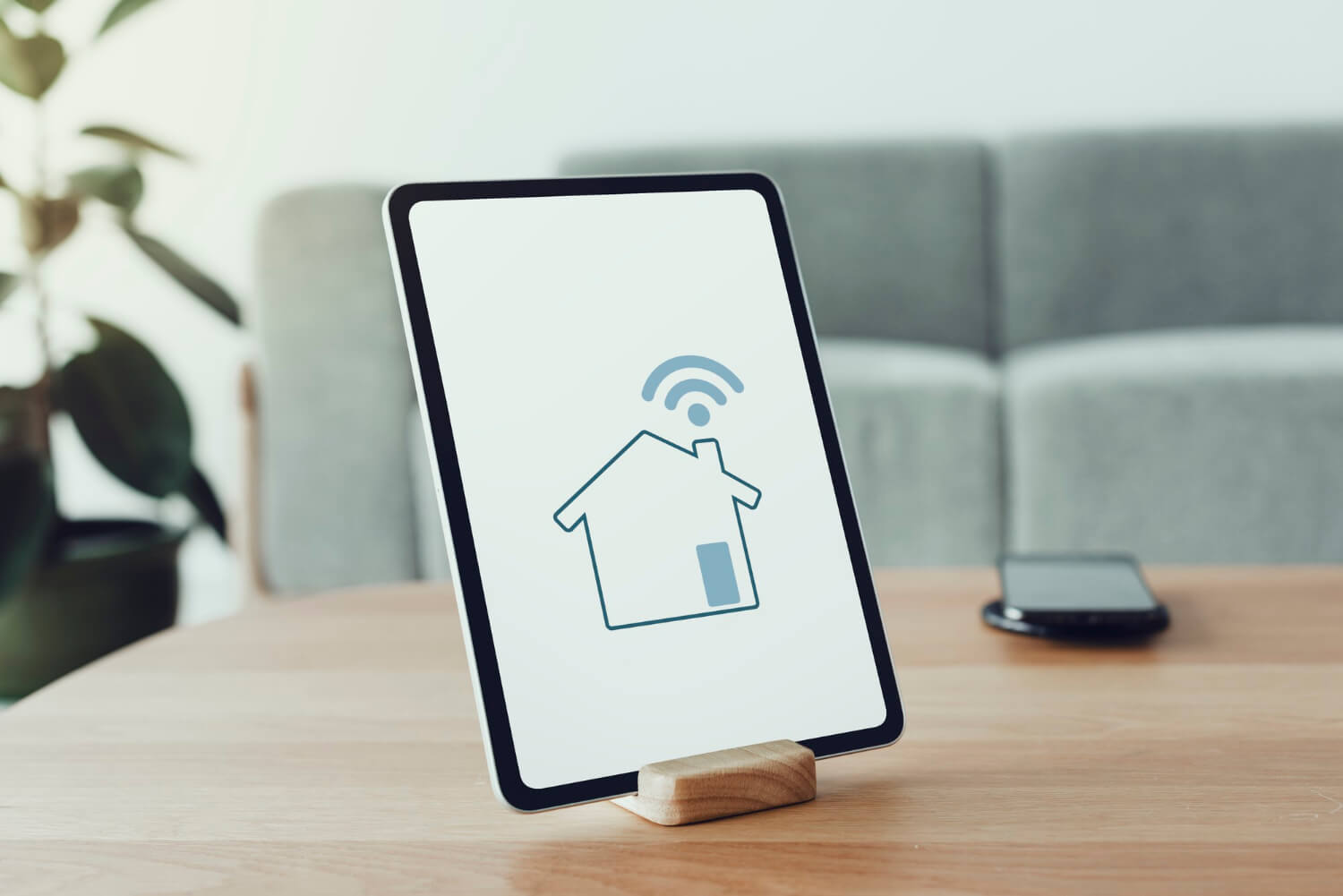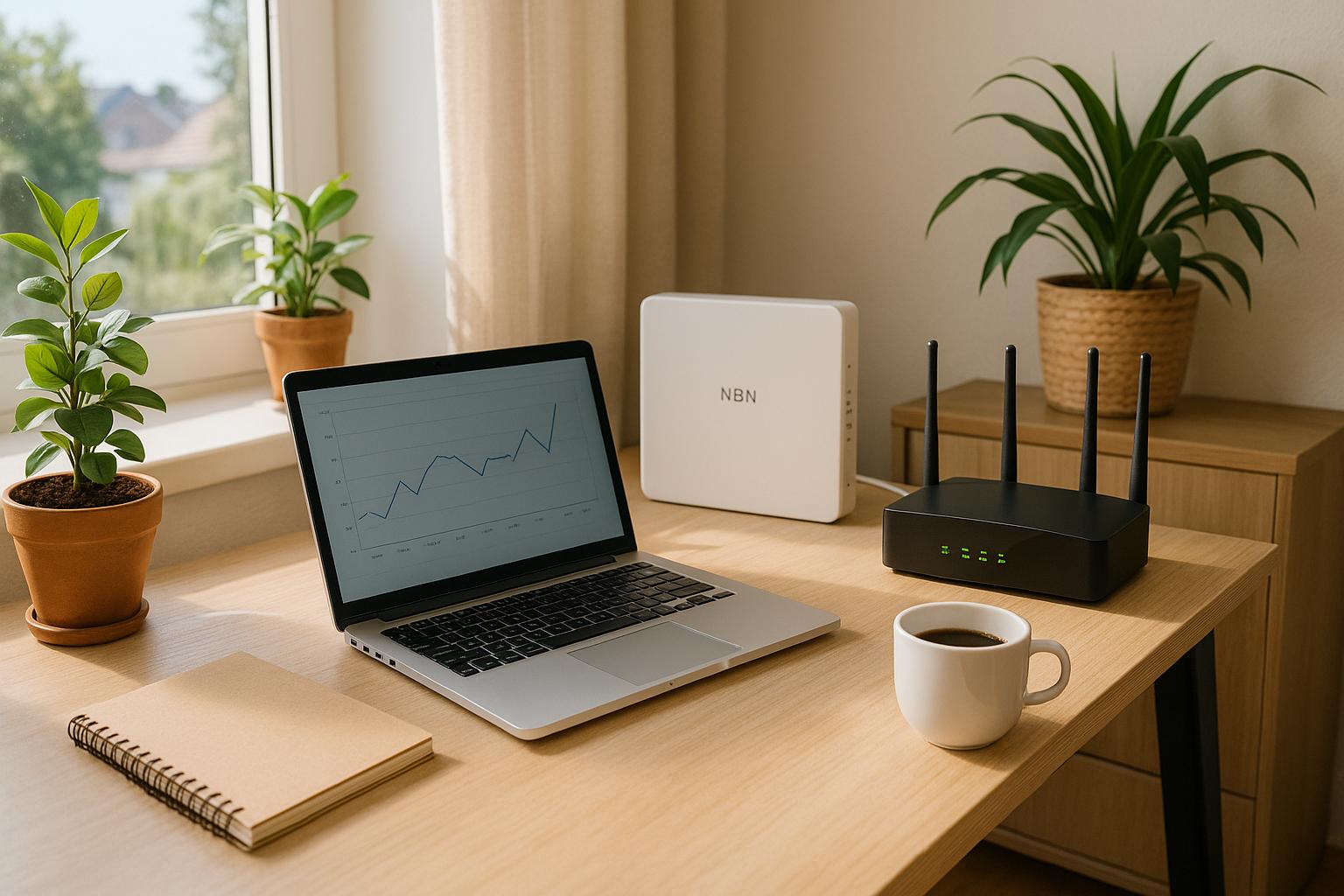G’day, mates! In this digital age, streaming your favourite shows and movies in ultra-high definition—be it 4K or 8K—has become the new norm. But there’s a catch: it requires super reliable internet. So, let’s dive into what you need to know about NBN internet speeds to enjoy a buffer-free streaming experience.
Why NBN Internet Speeds Matter
The National Broadband Network (NBN) offers various speed tiers to fit different digital lifestyles. Their capability to meet high-definition streaming demands makes understanding these tiers crucial for choosing the right plan.
NBN Speed Tiers Explained
Imagine settling down for a night of cinematic splendor only to be faced with constant buffering—quite frustrating, right? Here’s a quick guide to what each NBN speed tier offers so you can dodge such woes:
Home Basic I (NBN 12)
- Download Speed: Up to 12 Mbps
- Upload Speed: Up to 0.8 Mbps
- Best For: Basic surfing and standard video quality. Keep this for just browsing and emails unless you want to relive dial-up days during 4K streaming!
Home Basic II (NBN 25)
- Download Speed: Up to 25 Mbps
- Upload Speed: Up to 4 Mbps
- Best For: Light browsing and standard streaming. You need more oomph for consistent 4K streams.
Home Standard (NBN 50)
- Download Speed: Up to 50 Mbps
- Upload Speed: Up to 17 Mbps
- Best For: Household harmony! Stream in full HD without telling the kids to stop gaming.
Home Fast (NBN 100)
- Download Speed: Up to 100 Mbps
- Upload Speed: Up to 17 Mbps
- Best For: Heavy streaming in 4K, high-speed gaming, and multiple users. This tier is the sweet spot for 4K without hiccups.
Home Superfast (NBN 250)
- Download Speed: Up to 250 Mbps
- Upload Speed: Up to 21 Mbps
- Best For: Multiple 4K streamers under one roof—or a plunge into 8K territory.
Home Ultrafast (NBN 1000)
- Download Speed: Up to 1000 Mbps
- Upload Speed: Up to 40 Mbps
- Best For: Future-proofing your home. If 8K is your pursuit, this is your ticket to ride.
4K & 8K Streaming Requirements
Here’s the key bit: for streaming in 4K, you’ll need a minimum of 25Mbps. Thinking of stepping up to 8K? Crank it up to at least 100Mbps. Remember, these speeds are a minimum for fluid streaming. More speed means more stability and less chance of buffering-induced tantrums.
Common Factors Affecting NBN Internet Speeds
Even though you might pay for higher speeds, several factors can still throw your connection off track.
Network Congestion
Like peak-hour traffic on South Road, internet connections can slow down during high-usage periods (typically between 7pm and 11pm). Picking a plan with enough capacity is like taking a detour on a quiet street: no stress.
Types of NBN Connections
Let’s face it; not all connections are created equal:
- FTTN (Fibre to the Node): Good, but fibres combine with old copper. You may face speed bumps here.
- FTTP (Fibre to the Premises): Your best bet for speed demons.
- HFC (Hybrid Fibre-Coaxial): Another reliable option for high-speed streaming.
In-Home Setup
Your network is only as strong as its weakest link. Ensure you have up-to-date, quality gear: routers, wiring, and a setup that doesn’t include being blocked by walls or furniture can make a vast difference.
Evening Speed Expectations
In a real-world setting, typical evening speeds tend to dip slightly. Here’s what to realistically expect:
- NBN 100: Often hits around 90-100 Mbps during peak hours.
- NBN 250: Typically delivers between 200-250 Mbps.
So, if your feed’s stuttering over prime-time telly, you might be experiencing the dreaded peak-hour slow.
Optimise Your Experience for Ultra-HD Streaming
Selecting the right NBN speed is your first step, but there are more ways to enhance your heart-racing streaming adventures:
- Install updates to your devices regularly for an interruption-free experience.
- Consider ethernet over Wi-Fi if the stream still struggles on higher speeds.
- Avoid competing bandwidth use, especially during game updates or data backups, while watching your best flicks in 4K or 8K.
Conclusion: Your Ultimate Streaming Experience
Choosing the correct NBN internet speed to suit your 4K and 8K streaming needs in Australia isn’t about jumping on the fastest option available. It’s about selecting what matches your household’s consumption with the necessary equipment. By ensuring low latency, stable connections, and the right plan, you can sit back and enjoy ultra-HD content like an absolute pro. Cheers for delving into the world of NBN internet speeds with me, and enjoy the perfect stream!



